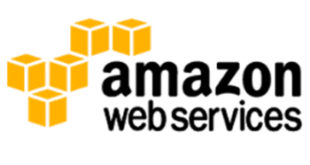Pete Watson, CEO, Atlas Cloud discuses how cloud is enabling secure hybrid working for the health sector
The world of healthcare services has been a steady beacon of hope and admiration throughout the global pandemic. While many industries have unfortunately slowed down dramatically, professionals working in healthcare and medical centres, care homes and hospitals have not only been grappling with the surge in crucial medical provision. Many have also been navigating increased on-site social distancing measures within their centres and the resulting shift to a more virtual service delivery.
Amidst a new landscape of virtual check-ups and consultations, it’s important that health workers have access to confidential patient data outside of the office without compromising security. As a result, cloud-based technology is playing an integral role in providing secure access to patient records and practice data from anywhere, whilst enabling flexible working as they operate across multiple locations. With over 70% of health and pharmaceutical professionals now favouring a hybrid working environment, cloud-based solutions and support is quickly establishing itself as a key player in unlocking secure hybrid healthcare.
With that in mind, let’s take a look at some of the fundamental advantages of bringing cloud technology to the UK healthcare and medical sector.
A secure solution
In the interests of staff and patient safeguarding, this shift to off-premise operations has paved way for a rapid uptake in remote working across the sector. Recent research found a 20% increase in the number of healthcare professionals equipped with remote working capabilities since the first lockdown hit back in March (45%). Covid-19 has inevitably forced many medical professionals to become reliant on increased email to communicate with patients and pass on their information about patients. Due to the nature of the sector, it’s vital that emails aren’t intercepted or compromised by viruses or other malicious activity.
In 2017, we saw how catastrophic being offline can be for medical centres and care facilities, when the NHS was a victim of a high profile cyber-attack in which ransomware locked access to records. When thinking of cloud technology, many have doubts over the security of the solution, worrying that it’s somehow less secure than having the data on-site in a server they can see. In reality, cloud-based solutions actually provide you with better security for your confidential medical data. Data is stored either off-site in secure data centres or in a secure public cloud, which removes any environmental risks to your information (fire and flood) and the level of encryption offered from cloud technology typically goes beyond traditional setups.
Cloud technology also brings an extra level of device security as no data is stored on the actual device; instead it is just accessed via the cloud. This means that, should a personal device go missing, no important patient data will be lost or compromised as applications can be locked remotely. Additionally, new security patches are released that can be applied remotely to all users immediately, ensuring that no one has any vulnerable, outdated operating systems – aiding all-important GDPR compliance.
Scaling with simplicity
The cloud also affords healthcare groups with the scalability required to operate across multiple practices, or expand to new locations with simplicity in an increasingly popular hybrid setting. Many healthcare staff are required to work on-the-go visiting the homes of those requiring care, or moving between various medical centres as needed.
Cloud-hosted desktop services can enhance users remote and flexible working, by allowing staff to effectively take their office with them with access to their email, files and applications – needing a simple mobile or WiFi connection to get up and running.
However, operating on a public cloud such as Microsoft Azure grants even further scalability, without costly investments in hardware. Such is the nature of healthcare that staff may only require their remote working capabilities during periods of heightened demand or when unexpected issues occur. With a public cloud approach, organisations can easily scale their usage up or down without lengthy payment commitments often associated with private data centres or on-premise storage hardware.
Maximising tight budgets
Budgets in the healthcare industry are always tight, with IT departments unable to spend what they’d ideally like to on hardware, applications and security. However, moving to hosted desktops or applications allows this budget to go further, whilst with secure access to applications on personal devices. With the required processing power needed coming from a public cloud or private data centre and not the device itself, users can switch to low cost-thin client devices instead.
These also use a lot less electricity which can bring savings on utility bills. Additionally, by moving to the cloud, healthcare organisations can decommission any old on-site servers which can be expensive to maintain. In a time of economic hardship, this reduction in capital expenditure combined with less commitment to hardware costs, enabled by the cloud can deliver the difference for healthcare services and their patients across the nation.
With cloud in place at scale, technology can be a true force for good, in terms of patient welfare, business continuity and staff stability as we look ahead to a more permanent state of hybrid working.
![]() Read the latest edition of PCR’s monthly magazine below:
Read the latest edition of PCR’s monthly magazine below:
Like this content? Sign up for the free PCR Daily Digest email service to get the latest tech news straight to your inbox. You can also follow PCR on Twitter and Facebook.
 PCR Tech and IT retail, distribution and vendor news
PCR Tech and IT retail, distribution and vendor news



